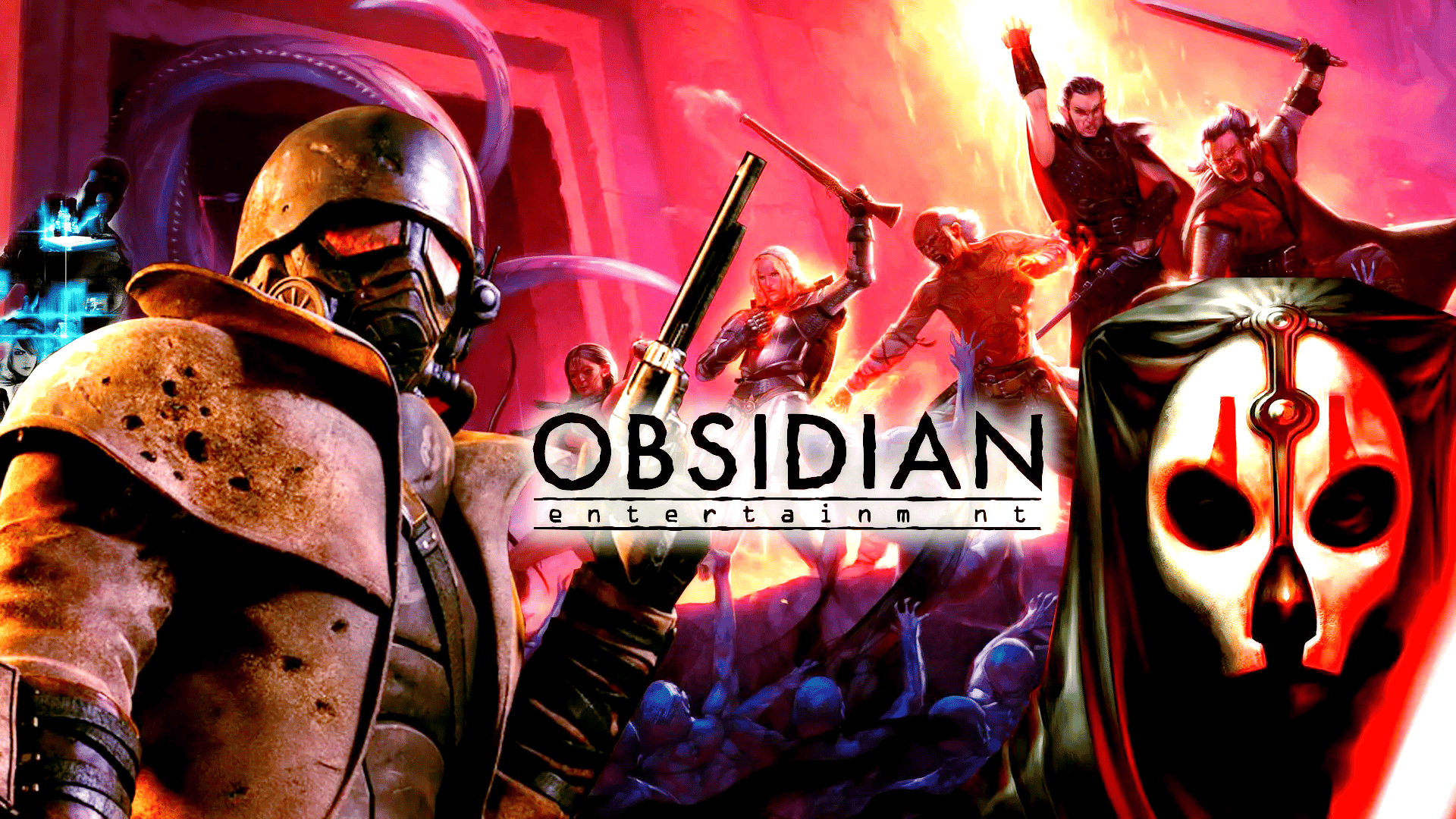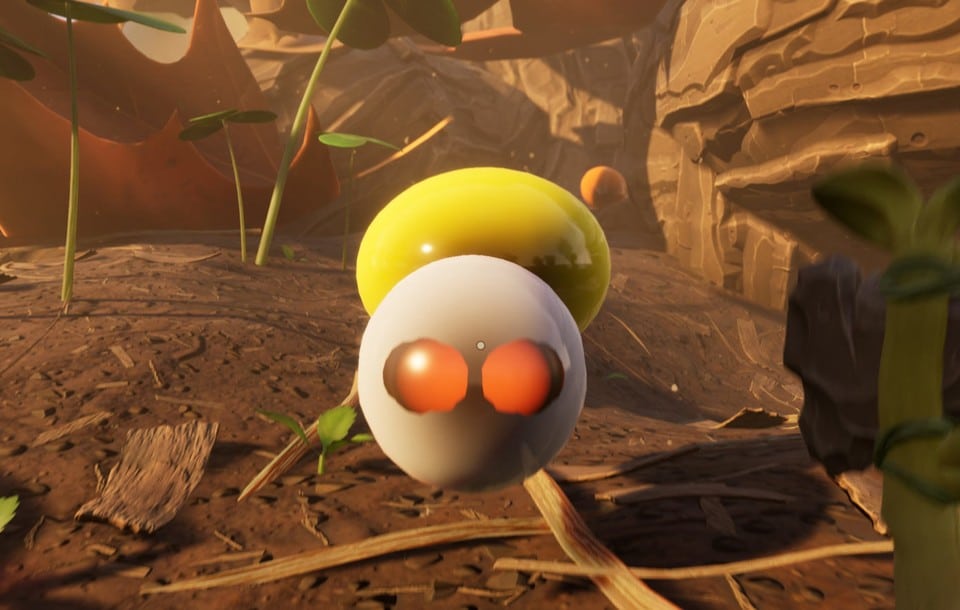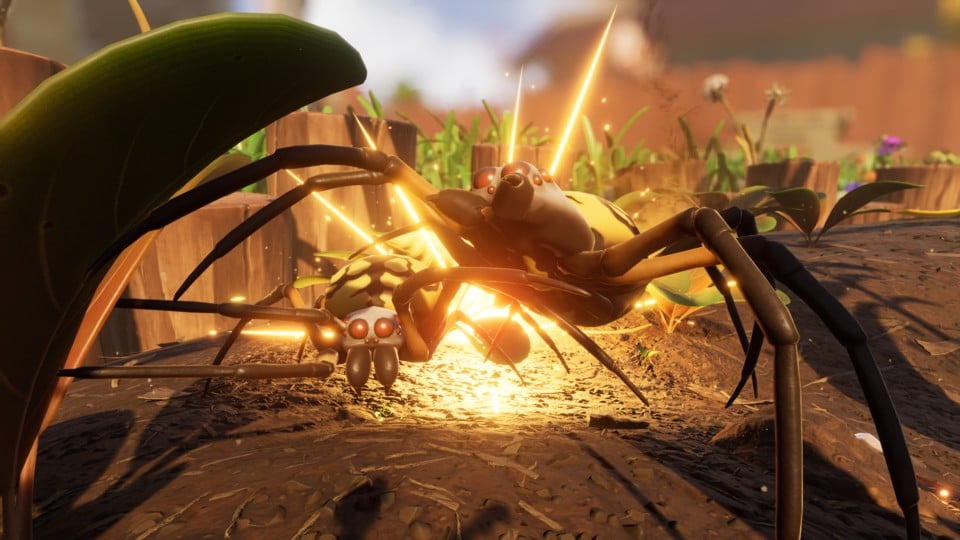2018 Microsoft acquired the pro role-playing game team Obsidian Entertainment – and with it a favourite developer of GlobalESportNews readers. What has changed for the studio since then? Three bosses were on hand to answer our questions.
As Obsidian’s game director Adam Brennecke shows off his survival game Grounded to a test audience for the first time, several people abruptly leave the room. “They put their arms up like they were surrendering, shook their heads and just left.” The reason for the spontaneous dislike of Grounded is not the game itself. It’s because it’s colourful and funny; after all, here we play four heroes shrunk to miniature size, fighting off all sorts of insects in the front and back yards of a house. And against spiders. Oh, wait …
“Right, the spiders were to blame,” Adam Brennecke recalls. “And we just thought, oh man, this is really bad. So we really wanted to include an arachnophobia mode and we brought in the Xbox Research Team to help: What’s the best way to implement a mode like that?”
Why we start this article with Grounded, its spider problem and the Xbox Research Team? Because it’s a good real-world example of what’s changed for Obsidian since Microsoft acquired the role-playing developer in late 2018.
Publisher swallows cult developer, we gamers are already reflexively ringing alarm bells. But what is it really like to be integrated into a large corporation as a previously independent studio? How did it work back then? How does the day-to-day business change? Who decides which games are made and how?
We spoke independently with three executives from Microsoft and Obsidian Entertainment: Obsidian’s game director Adam Brennecke, whom we already mentioned briefly, as well as Mary McGuane, studio general manager of Xbox Game Studios, and the man with the coolest name in the game industry – Feargus Urquhart, one of the founders of Obsidian in 2003 and now president and CEO.
They all say Obsidian is doing better than ever under Microsoft – and continues to make role-playing games.
Our interviewees
Mary McGuane, Studio General Manager at Xbox Game Studios,has been with Microsoft for over 20 years in gaming and tech. As Studio General Manager, she works closely with Obsidian, inXile and Double Fine, whose acquisitions she has spearheaded.
Adam Brennecke is Game Director at Grounded and has been with Obsidian Entertainment since 2004. He was involved in Knights of the Old Republic 2 and Fallout: New Vegas, and also worked as Executive Producer and Lead Programmer on both parts of Pillars of Eternity.
Feargus Urquhart began his career as a playtester at Interplay in 1991. In 1996 he founded its internal development department Black Isle Studios, and in 2003 he and four colleagues founded the unofficial successor team Obsidian Entertainment. Today, he is CEO and head of over 200 employees.]
Table of Contents
2020: the Spider Slider
But let’s jump back to the spiders for a moment and the Xbox Research Team that Obsidian has access to for development. This department assists all Microsoft studios when it comes to scientific research, such as historical facts or user surveys.
Obsidian didn’t want a sledgehammer solution like in Satisfactory, where spiders are simply replaced by cat pictures. And because Grounded is a co-op game, spiders also need to be customisable, simply leaving them out completely is not an option.
So the Xbox Research Team sat down with arachnophobes to find out what exactly scares them. The eight eyes were mentioned most frequently – and so several spider sliders were built into the game, with which players can gradually reduce the eyes, hair, legs and so on, all the way to complete invisibility.
“You can even disable the spider sound, even though spiders don’t actually make any noise “
For Adam Brennecke, the research team is a great advantage at Microsoft: “We get much more direct feedback than before, which was not possible as an individual developer. This allows us to implement user wishes early on in the game.”
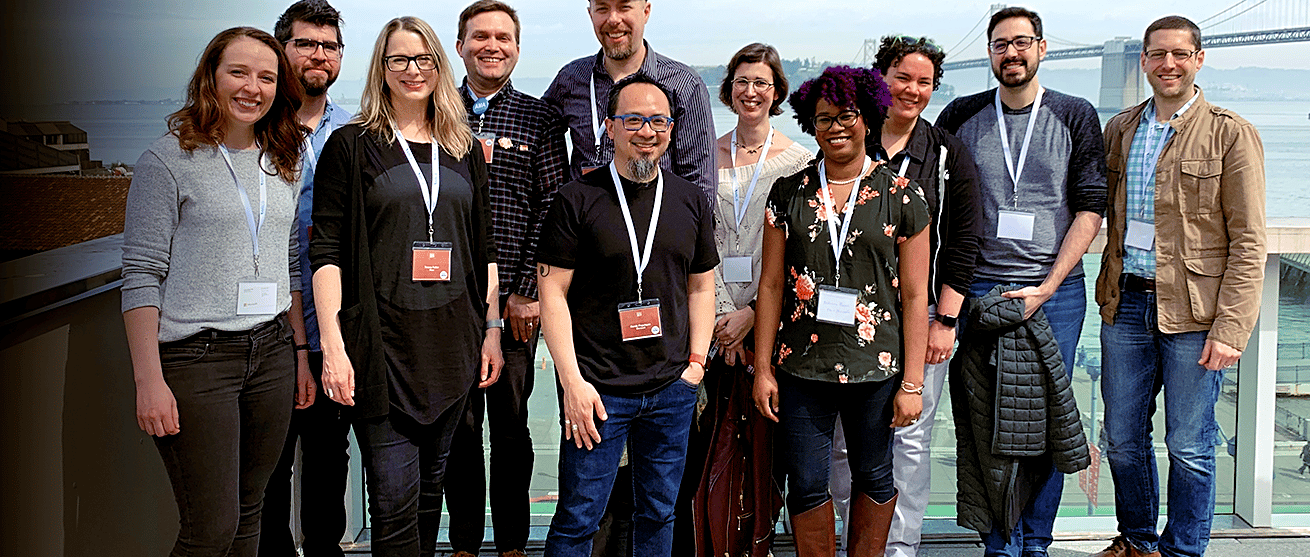
When developers have a question, they can turn to a Microsoft-owned department. The researchers there interview experts, study sources, conduct playtests and experiments. Among other things, they help to make the user interface (UI) of games more accessible (for people with disabilities, for example), to check games with new input methods or to get historical details right.
The staff of (Xbox Research) have a background in psychology, sociopsychology or neuroscience. At the request of Microsoft-owned studios, they conduct analyses of their concepts and games and help optimise processes on such diverse topics as (toxic) communication in online games, game design adapted to the needs of the deaf or the formula for better game stories.
The Research Team is also used by other games and studios. At Grounded, it doesn’t just look after hairy critters, but also the entry into the game, the graphic style and the tutorials. The team investigates where players get stuck and what features they might not even notice. But let’s go back a step further: What was it like back then with the takeover?
2019: Welcome to the family
On Microsoft’s side, Mary McGuane is leading the charge at the time, “Before we acquired Obsidian and the other studios in 2019, we looked at three things when we were evaluating: the people, their teams and their ideas. So who’s leading these studios, whether there’s a team that can develop high-quality games and also finish them, and finally the ideas they have.”
Pretty quickly it crystallises at that point that Obsidian brings exactly these three things to the table. And then everything happens very quickly, recalls Feargus Urquhart: “Microsoft signalled interest in us, and we met with Mary, a few other Microsoft people and my partners for lunch shortly afterwards. We agreed very quickly and got everything sorted. Of course, the contract details still took some time, but basically everything was in the bag with that lunch. “
2003 to 2018: Shark in the Shark Tank
For Feargus and his team, this ends long years of independence. Around a dozen of his people date back to the days of Black Isle Studios, Interplay’s in-house development team that Feargus founded in 1996. Black Isle closes in 2003, but by the end of the year he is already moving on with his new studio Obsidian Entertainment. For Feargus, this means one thing at the time: fighting for projects and budgets.
“The biggest part of my job all these years has been getting our studio funded. I like to compare independent developers to a shark: we have to keep swimming to get the next deal, and when we sign a contract, we have air again for a while – until the chase starts all over again”
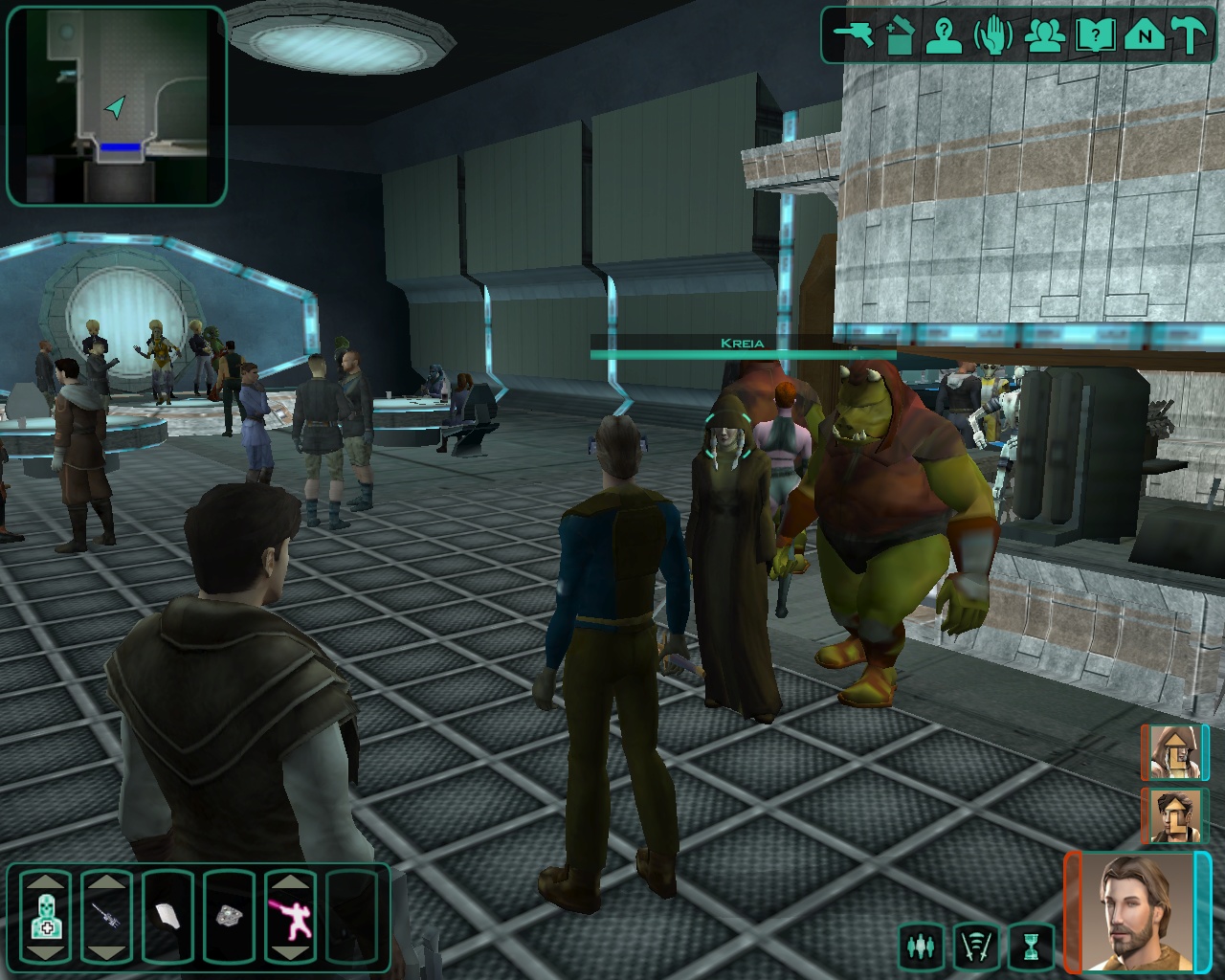
“It was finally our own money, no one could yell at us anymore. Sorry, that might have been the wrong wording… I mean, we were us, we were among ourselves, we were in charge ourselves, set our own features, budgets and deadlines”
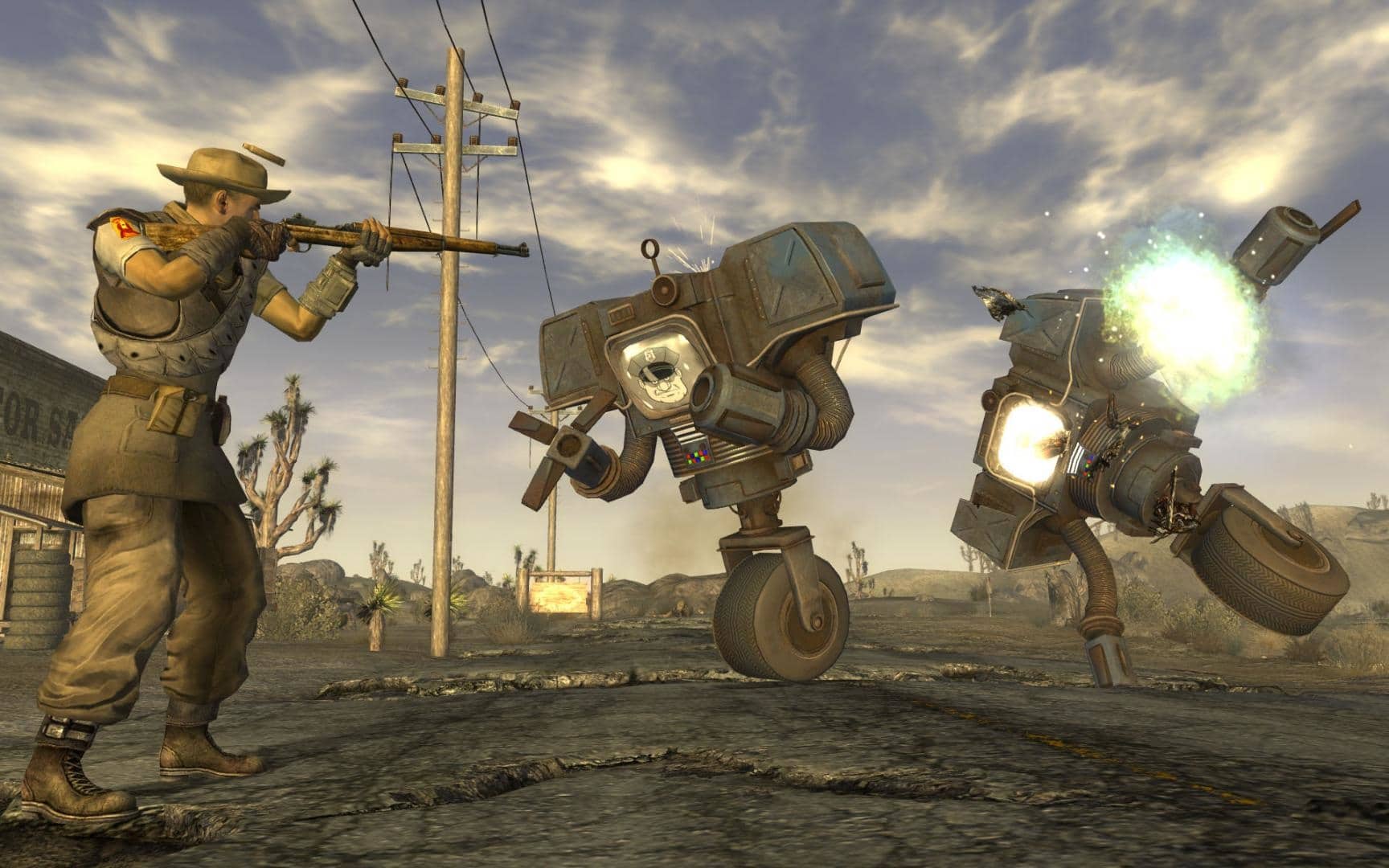
More time for games
As Microsoft’s offer comes in, Obsidian wants to stay one thing above all else: Obsidian. “Myself and everyone else here wanted to keep making RPGs as Obsidian, and Microsoft is giving us the opportunity to do that,” Feargus points out, “Of course, they’re not just going to let us screw around with something for ten years. We have a responsibility to finish our games, and if we do that well and deliver great titles, we can keep doing that forever.”
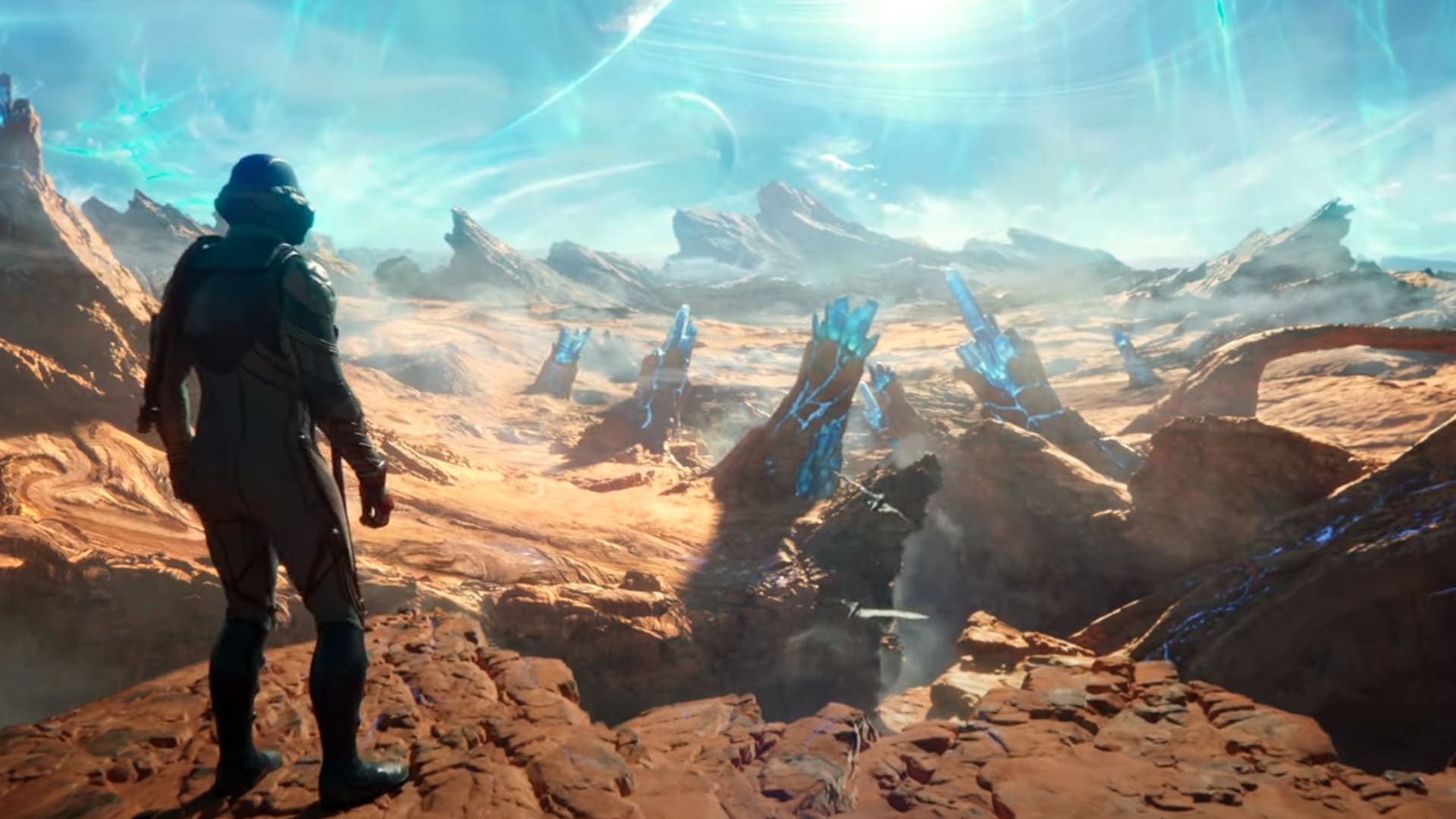
But for the Obsidian boss, it also means he can invest more time in the games. And because his studio has now grown to around 200 people, several projects are possible in parallel. There are currently four in the pipeline:
- Grounded will go from Early Access to official release in September.
- The fantasy role-playing game Avowed currently has no release date. According to rumours, there are many problems behind the scenes, so the development is said to have been restarted after the departure of the lead developers.
- The Outer Worlds 2 does not have a release date yet.
- And the just-announced historical adventure Pentiment is coming in November 2022, a “Passion Project” under the wing of game design veteran Josh Sawyer.
Obsidian has enough to do, then, the shark days are over.
As much as necessary, as little as possible
But how much does a studio that was independent for over 15 years have to bend when transitioning into a global corporation? How do you get integrated? “A very good question, because I asked myself the same question,” says Mary McGuane.
In the end, the strategy is simple: the studios (including Wasteland 3 developer Inxile Entertinment) will not be assimilated, but only the most necessary areas will be integrated – IT, for example, security regulations, company policy. In everything else, the new family members are to remain as independent as possible.
“We didn’t want the daily routine to change significantly for Feargus or other employees at the studio, because that can be very disruptive. That’s exactly my job: to sit down with Feargus and the other studio heads and listen to their feedback on whether new Microsoft processes are meaningful and important to them or not. That way the teams can focus on the games and not on what it means to be part of Microsoft now”
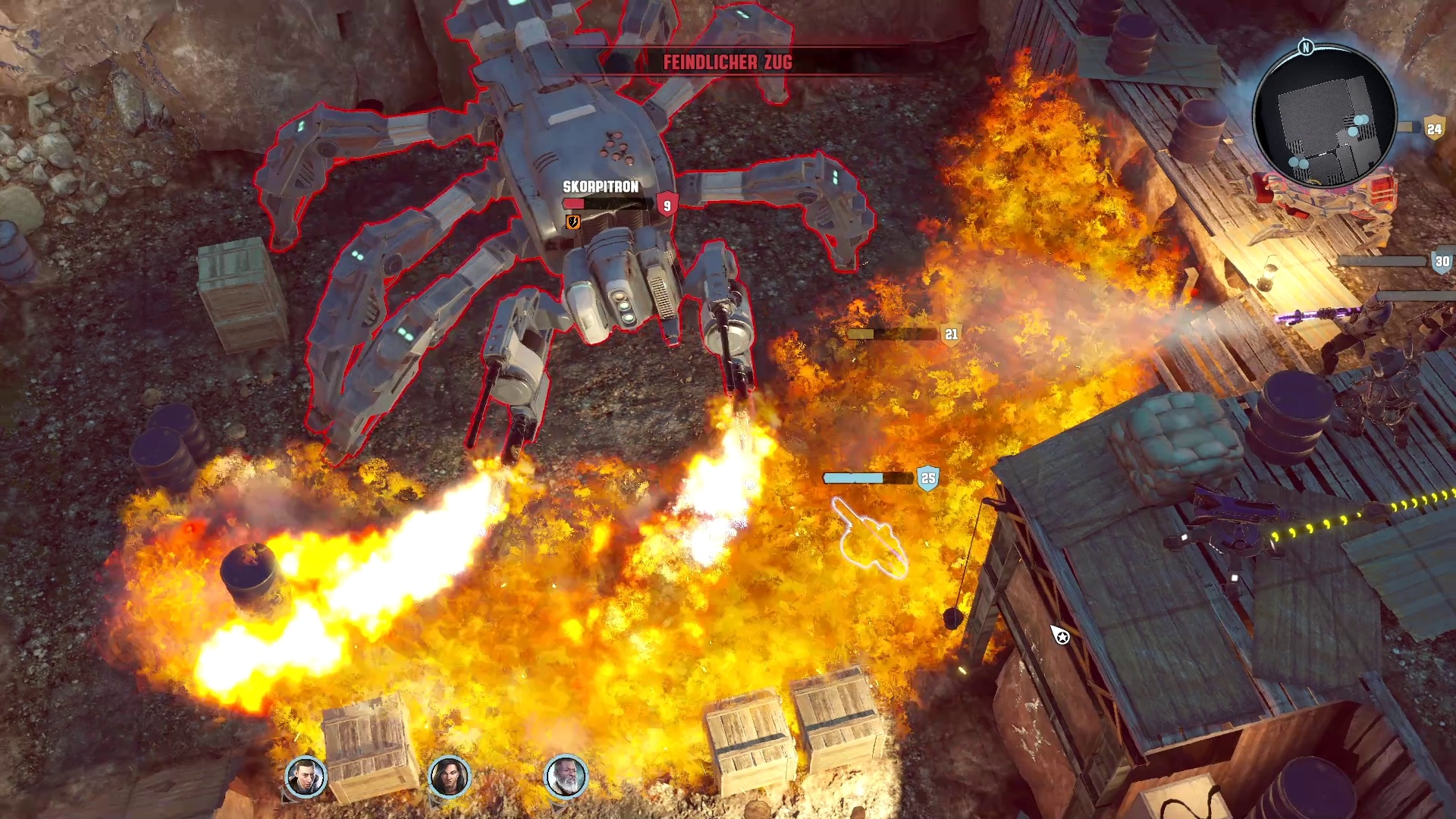
The biggest challenge: a luxury problem
This sounds like one big happy family. Still, the move from independence to a global corporation brings new challenges, Feargus Urquhart tells us.
“Of course people talk about it: ‘Oh, there’s the big bad publisher or console manufacturer, they’re going to come to us at some point and try to change the culture and stuff like that!’ I’m sure that happens with takeovers, but not with us.
Our biggest challenge now is to handle big budgets responsibly. We used to convince a publisher to give us a lot of money. Then we spent that, and sometimes we had to ask for more money. We then negotiated deadlines and finally got a game out.
And now we’re part of Microsoft, and we could spend $72 million on a gun animation. But you still always have to think about what really makes sense, it’s our responsibility after all. I’m sorry to give you such a boring answer, but that was actually the biggest challenge for us “
Who decides which game is made?
But who ultimately decides what games are made? Do the individual studios decide for themselves, or does Microsoft say, “Hey, we’ve got this brand and this idea, which studio is going to implement it best?” Clear statement from Mary McGuane:
“The decision really comes from the studios, they just have that creative freedom now. We have franchises like Halo and Forza, but on the other hand we also have the studios that I work with that can come up with their own ideas, that’s really important to us. We would never say from the top down ‘you’re doing a space simulator now’, even though that wouldn’t suit the team at all, because its strengths lie somewhere else entirely. And those strengths make the best creative games.”
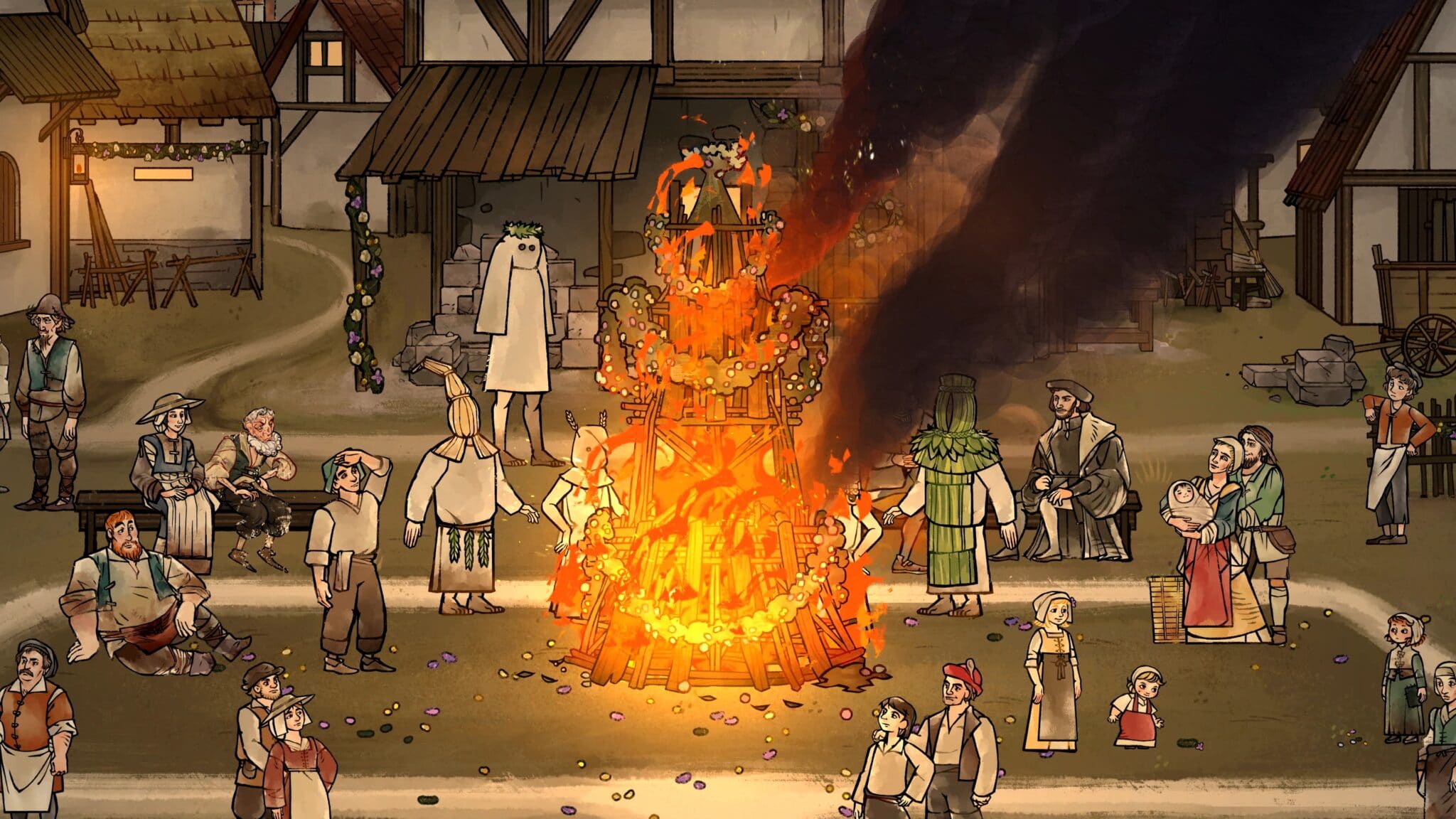
Though at first glance the survival game Grounded and the freshly announced Pentiment fall out of the classic, RPG-focused Obsidian game pattern. But Feargus Urquhart explains to us why that’s not true at all: “I think sometimes at some studios people sit down with a list of 17 things that an RPG has to have. But at Obsidian, we’ve made a lot of different games and we’re not afraid to look at things differently.”
“And especially when you look at Pentiment, it’s really a game that has a lot of what we do right, and its story drives it strongly. It has a lot of storytelling, it creates a world, there are a lot of characters. Those are all things that make up a lot of who we are. Sure, Pentiment is a bit different, but again it creates a world and brings players into it. I think that’s one of the most important qualities of role-playing games: Bringing people into worlds “
Grounded: one idea, ten million players
Grounded also throws people into a world, albeit a very tiny one. How did the idea to develop a cooperative survival game with shrunken heroes actually come about? It came from Adam Brennecke, and came almost far too late:
“At Obsidian, we’ve wanted to make a survival game for a very long time. At the time, I was part of the Pillars of Eternity team. And while we were working on the two parts, the survival genre kind of came out of nowhere. We loved playing Ark and The Forest back then, Subnautica was also one of our favourites.
Before Grounded started at Microsoft, lead designer Bobby Null and I locked ourselves in the office for several days of brainstorming to figure out how to get a good hook for our game – because we knew the market was pretty flooded: stranded on deserted island, stranded with zombies, and so on “
A me-too game is out of the question for the two. “We wanted to do something special, of course, our own interpretation. As role-playing game developers, we definitely felt drawn to the medieval fantasy RPG type. But we also wanted to play through other ideas, went through action films from the eighties, watched Terminator and Predator and stuff like that. At some point we ended up with the backyard theme, where you’re thrown in and you have to survive.”
Obviously, Grounded hit a nerve: according to Microsoft, over ten million players are in Brennecke’s and Null’s backyards – with or without spiders.

